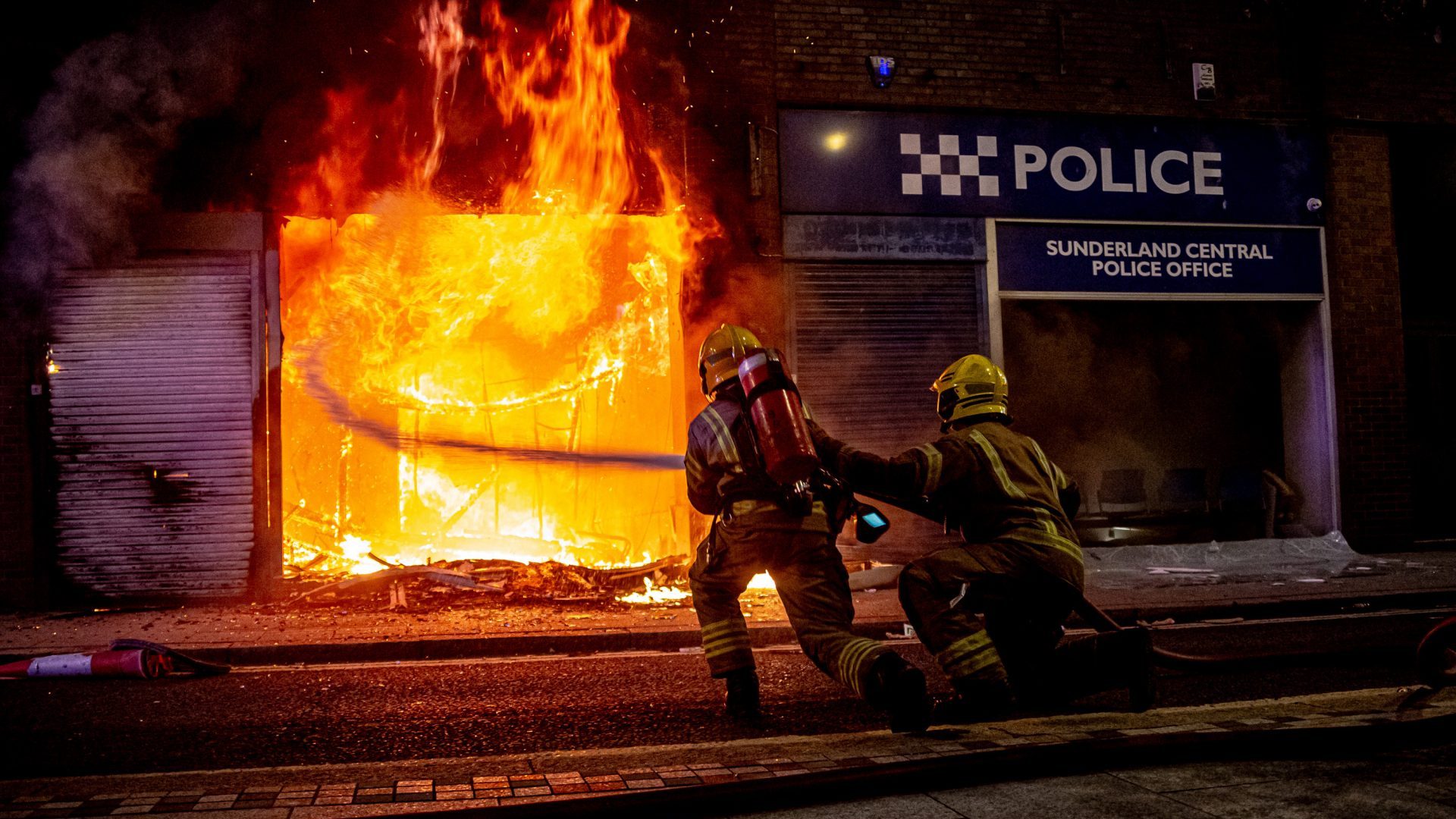Axel Rudakubana is evil. When someone stabs three children to death, in an attempt to kill as many others as possible while planning the use of a lethal chemical weapon, evil may be an understatement. Hannah Arendt’s famous concept of “radical evil” – used to describe the perpetrators of the Holocaust might be more appropriate.
Those possessed by radical evil, Arendt wrote, not only dehumanise their victims: “They do not care if they themselves are alive or dead, if they ever lived or never were born”. The mute defiance in the dock of Rudakubana, sentenced to a minimum of 52 years in jail, fits that pattern well.
But our political, legal and media infrastructure struggles to deal with radical evil. That is what allowed Rudakubana to inflict not only death, grief and misery on families in Southport, but to detonate the worst fascist riots in British history.
He was obsessed with genocide, violent at school, referred to the Prevent counter-terror agency three times and his own family called the police on him on numerous occasions.
Because, being 17 at the time of the murders, he could not legally be named, that opened a space for far right conspiracy theorists to claim he was a Muslim asylum seeker who had arrived by boat, and to incite serious violence against wholly innocent people.
Now a coalition of far right, Reform and Tory voices are claiming that details of the crime were deliberately “covered up” by the Labour government. The implication is that Keir Starmer deliberately downplayed the potential terrorism angles of the case – either to reduce tensions or for reasons of wokeness.
First of all, let’s be clear. If there was a “cover-up”, every newspaper editor in Fleet Street was part of it. Senior crime reporters and their editors will have known exactly the same details about the case as Starmer did, and will have followed the same legal advice.
The CPS told ministers not to reveal details that could have prejudiced the trial. Had it ignored that advice they could have been found in contempt of court – and so would the newspapers. That’s why everyone, not just Starmer, obeyed the law.
There were “serious risks to the integrity of the trial”, said the CPS, if elements of Rudakubana’s history had been reported before the prosecution had the chance to put its case to the jury.
That might be frustrating for us, the public, struggling to make sense of an apparently crazed act of violence – but it is the law. In a democracy, the rule of law has to be sacrosanct, even if it creates grief and inconvenience for the rest of us.
The law deems perpetrators innocent until proven guilty, even when “everyone can see” they are guilty, and they are behaving guiltily. That is because, not very long ago, people like Rudakubana controlled states.
We, the people, imposed the rule of law on elites who relished murder and glorified violence. The rule of law and the blindness of justice are our democratic achievements – and politicians proposing to randomly flout one of the most basic instruments – the contempt of court law – should be very careful.
That being said, we are facing new manifestations of evil and need to evolve our responses to it.
Our laws and law enforcement mechanisms against terrorism are geared to fighting Islamist and fascist violence. Rudakubana appears to have fantasised about genocide against white people, and indeed – like his far-right counterparts – become fascinated with genocide as an act sui generis.
What Starmer was struggling with, as he announced a public inquiry into the system failures that allowed Rudakubana to plan and perpetrate his crime, is a kind of evil that is hard to categorise: a determination to do harm, and cause mayhem, for its own sake.
Unfortunately, this kind of evil is proliferating because the rationale for it is not so hard to ingest. The idea that the world is doomed, that all politics is corrupt, that life is meaningless and all morality a sham is not exactly a new one: its Nietzschean origins are understood by every fascist and every postmodernist.
Nietzsche depicted his proposed master race as “joyful monsters, who perhaps walk away from a dreadful orgy of murder, arson, rape, and torture with an exhilaration and spiritual equilibrium, as if they had merely pulled off a student prank, convinced that the poets now once again have something to sing about and praise”.
Today people who want to do stuff like that will find ample justifications for it online, and indeed – as Rudakubana did – literal instruction manuals.
So while I think the government was right to obey the contempt law, I also think we need to change it. The information vacuum around the Southport murder case allowed fascists to foment mass violence; it left the victims unable publicly to rationalise the crime; and it allowed the perpetrator to manipulate public opinion.
At a time when more attacks like this are possible, and where malign foreign governments and billionaires are determined to destroy our democracy by flooding it with disinformation, we need more timely and effective ways of countering rumours and explaining traumatic events.
The Contempt of Court Act prevents reporting of information which, while accurate and relevant, “vilifies a person in the proceedings or presumes their guilt or innocence”. The problem is that evil people don’t mind being vilified; as Arendt wrote, they don’t even care whether they are alive or dead.
We need to find a way to respect the rights of perpetrators in high-profile cases of violence and sexual violence, while upholding the right of society to timely and accurate information. Because the information vacuum has become one of the perpetrators’ most effective weapons.




